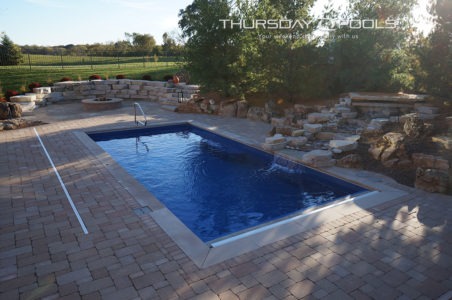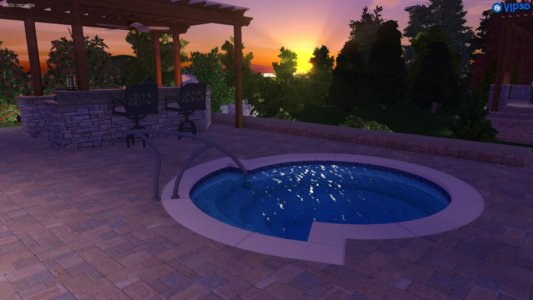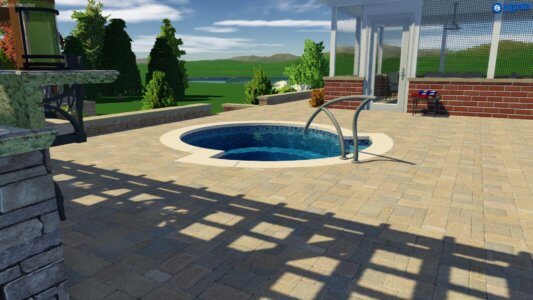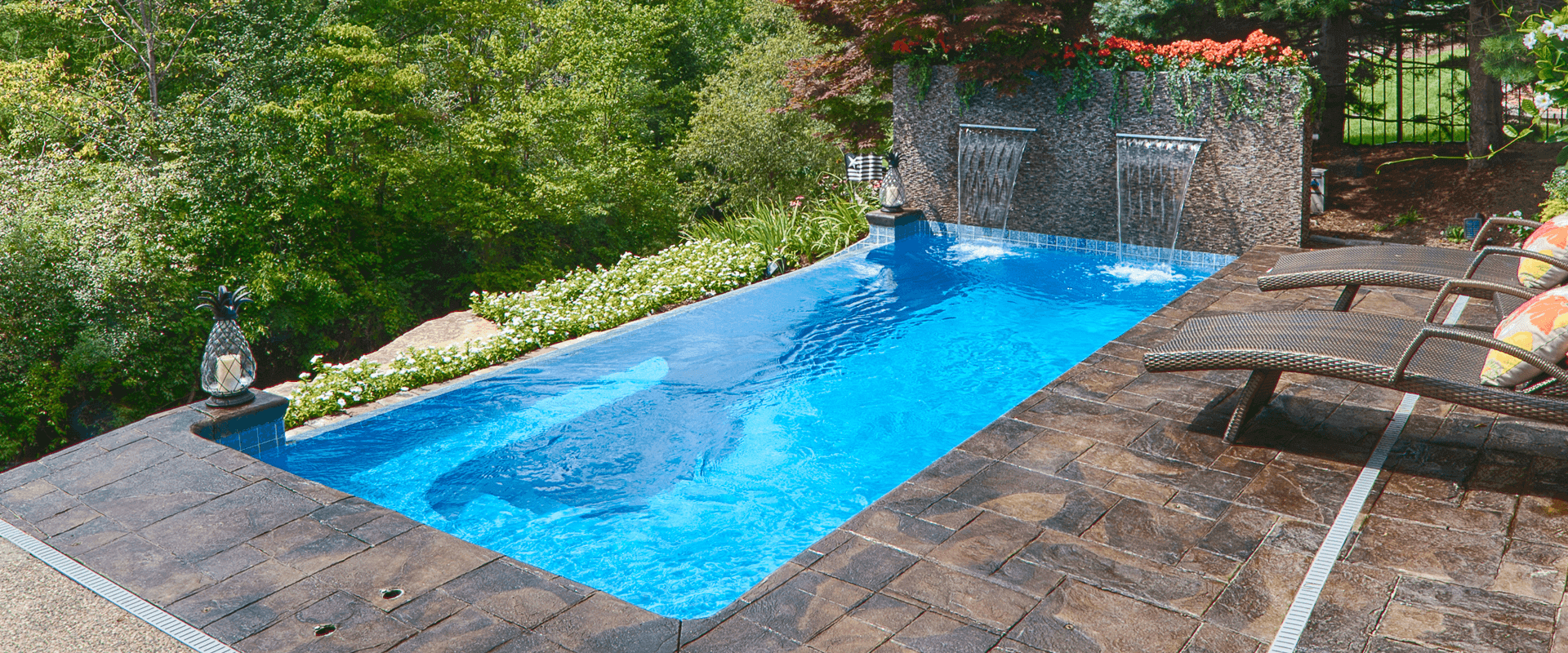877-929-(7665)
Ways to Heat Your Swimming Pool
It gets cold in North America, even in our most tropical climates. Depending on where you live, nighttime cooling or winter weather can interfere with an enjoyable swim. That’s why before purchasing, buyers commonly ask, “can a fiberglass pool be heated?” The answer is yes: like other inground pools, you can heat a fiberglass pool. In fact, they tend to heat faster and retain heat longer than other pool types. Let’s explore the options for heating a pool.
Gas Pool Heaters
Gas heaters are relatively more cost effective upfront, but can be expensive to operate. While gas pool heaters will heat your pool quickly and are durable in inclement weather, they wear out faster than other pool heating options. They are an ideal option if heating your pool as quickly as possible is an important feature.
Gas heaters run approximately $900 to $2,200 for a typical residential inground swimming pool on average, and installation typically costs another $500 to $1,500. Operating the heater may run around $200 to $400 per month, depending on how frequently you run it and the utility prices in your area.
Gas Heater Pros: heats up fast
Gas Heater Cons: more expensive to run and don’t last as long
Propane Pool Heaters
If your home doesn’t have a natural gas supply line and you still want a gas heater, a propane pool heater is an alternative. Propane works much like gas. It reliably and quickly heats the pool water and is relatively easy to hook up. Propane units can wear out quicker than other options and, like gas units, cost a little more to operate.
Like natural gas, propane pool heaters run between $1,500 and $2,500 and $500 to $1500 to install on average. Operating a propane heater typically costs around $200 to $850 per month, depending on the frequency of usage and propane prices in your area.
Propane Heater Pros: heats up fast and efficiently
Propane Heater Cons: more expensive to run and don’t last as long
 Electric Heat Pump Pool Heaters
Electric Heat Pump Pool Heaters
Heat pumps are becoming a popular option for pool owners as they are an energy-efficient means of heating a pool. They use a 220V electrical line to convert energy into heat. Heat pump pool heaters work most efficiently when the outside temperature remains above 45 to 50ºF.
A heat pump’s mid-range price is around $3,500, and installation costs between $500 and $1000 on average. However, they typically only cost about $100 to $200 per month to operate. Because electric heat pumps work off the ambient air temperature, they are slower to heat than a typical gas heater.
Heat Pump Pros: less expensive to operate, energy-efficient, a cleaner energy source
Heat Pump Cons: slower to heat, dependent on outdoor temperature, more expensive upfront
Electric Resistance Heaters
Like electric heat pumps, electric resistance heaters run on electricity. However, instead of relying on ambient air temperature, the pump passes water directly over a heating unit, resulting in efficient water heating despite the outdoor temperature.
Electric heaters cost an average of $1500 to $4000 plus installation costs around $500 to $1000. Operating costs depend on usage and utility prices but are typically higher than other heating options. Expect to spend roughly $200 to $600 per month on operating costs.
Electric Resistance Heater Pros: lower upfront costs, greener energy source, not dependent on outdoor air temperature
Electric Resistance Heater Cons: high operation costs, not as energy-efficient
 Solar Pool Heaters
Solar Pool Heaters
Through solar panels, solar pool heaters convert energy from the sun into heat for the pool. Solar pool heaters are good for the environment as they generate and utilize clean, renewable, and reliable energy, and they can potentially last up to 30 years with minimal maintenance. Solar heat helps eliminate carbon dioxide and nitrogen oxides emissions, a significant contributor to smog and global climate change.
Solar pool heaters are more expensive at a purchase cost of between $2,000 and $8000 as an initial investment on average, plus an average of $500 to $1500 for installation. They often pay for themselves over time because they have essentially no operating costs.
Solar Heater Pros: no operating costs, long-lasting, green energy source
Solar Heater Cons: higher initial cost, slower to heat, require year-round sunlight
Location Factors
Location can factor into your choice of pool heater in several ways. By connecting with an experienced local installer, you’ll have a guide regarding these potential location factors:
- Tax Breaks – Your state or federal government may have added electric and solar heat pumps to the list of equipment that qualifies for special tax breaks. Talk to your dealer or tax advisor about these guidelines.
- Cold Climate – If you live in a colder climate, a gas/propane heater may be the way to go for its robust and quick performance.
- Remote Location – If you are in a remote area with limited access to the electric grid or municipal gas lines, propane or solar heaters may best suit your situation.
It’s important to note that these price ranges will vary depending on many factors, like geographic location, whether or not you have a pool cover, average temperatures, etc. Pool heater installation may require municipality approval and connection to existing power/fuel sources. You’ll want to match the heat source choice to your pool’s location, water volume, and temperature desires. It’s not unheard of to do a DIY pool heater installation, but we suggest checking local regulations and considering using a pool professional.
